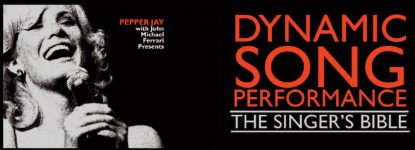How to Turn Performance Anxiety into Heavenly Experience
THE SEVEN LEVELS OF AUDITION HELL
Intro: Learning How to Turn Performance Anxiety Into a Heavenly Experience
For the next several issues, we will be exploring the 7 levels of Audition Hell.
There is no easy way to perfect the art of the audition. Unlike acting, singing, dancing, or any other skill that one can master over time, auditioning is unique in that the performer is constantly faced with new situations, new circumstances, and new challenges.
You can plan all you want, prepare for weeks, memorize and run through your material, and you still won’t be entirely sure what to expect in that inner sanctum known as the tryout room. Even seasoned stage veterans admit to feeling nervous at times as they walk in front of the imposing yet revered casting table, wondering just exactly what it is that the powers that be might be looking for.
There are many different types of scenarios that can unfold throughout the audition process which will prevent even the most confident performers from doing their best and winning the role. So, keeping in mind that almost all casting calls are rife with opportunities to blow one’s big chances at stardom and success, we here at Actors Reporter have organized these hurdles, obstacles, and mental blocks into the Seven Levels of Audition Hell.
You may have received a degree in acting from a prestigious school, winning leads in university plays and being the Big Actor or Actress on Campus for the past four years. You may have sashayed your way through college on a ballet scholarship, or sang and strummed your way to a music diploma. Now comes the real world, and guess what? You’re going to have to start learning all over again. You’ll find out soon enough that your favorite professor is not always going to be directing the show, the beautiful air-conditioned auditorium you usually try out in has been replaced with a dusty black box with zero ventilation, and you don’t have any friends in the casting room.
College and university programs can only prepare you for so much, showing you the steps, notes, and cues you can take to gain an edge on the competition. But getting your foot in the door and getting noticed in today’s performing arts market requires a whole other type of skill. Gone are the days when you could snag the lead just because you were the only one in the drama department that could fit the costume. Now there are thousands of people like yourself willing to literally squeeze into anything they are given to get their names on the marquee.
Performers who move to the larger markets may be in for a bit of a shock when they come face to face with a roomful of aspiring superstars all claiming to be destined for greatness. It isn’t just a few triple-threats they’ll be facing. They will be going up against career auditionees who go to two or three casting calls a day, are fluent in the methodology of audition mind games, and have a litany of monologues and a repertoire of musical selections at their fingertips (not to mention dance shoes at the ready in their backpack).
So even if you have been studying show business stratagems for more years than you can count, you may want to consider signing up for some additional formal training at any point in your career. Audition workshops, monologue study programs, and personal coaching are great opportunities to put your theories in practice and become more comfortable with the entire casting process and turn Audition Hell into Callback Heaven!
In our next Career Cues, we’ll explore Level One of Audition Hell … Pre-Audition Jitters. Break a leg!

